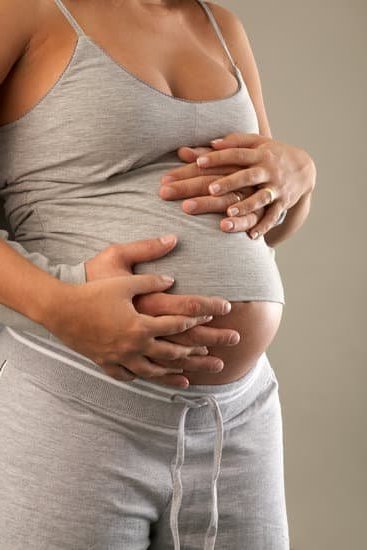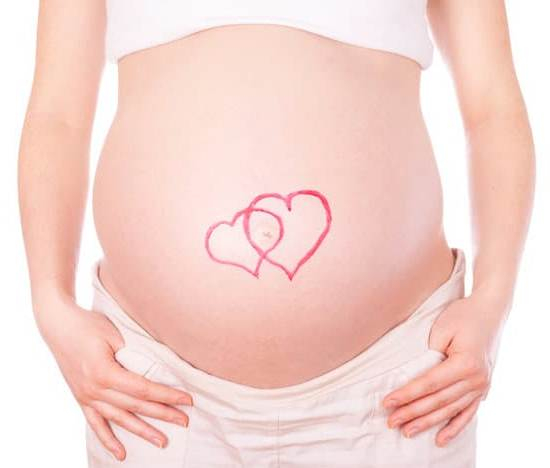Pregnancy is a time when many women become more conscious about their health and the impact of their lifestyle choices on their growing baby. One common concern that arises is the consumption of caffeine during pregnancy. This article aims to explore the relationship between caffeine and pregnancy, shedding light on its potential effects and providing guidance for expectant mothers.
Caffeine is a widely consumed substance found in coffee, tea, chocolate, and various other products. Many pregnant women wonder about the safety of consuming caffeine during pregnancy and its potential impact on the developing fetus. Understanding the chemical makeup of caffeine and its effects on the body is crucial in making informed decisions about its consumption during this delicate period.
It’s essential to delve into recommended limits for caffeine intake during pregnancy and discuss potential risks associated with exceeding these limits. Additionally, we will explore common sources of caffeine in everyday foods and drinks, enabling expectant mothers to make educated choices when it comes to their dietary habits during pregnancy.
With a focus on research findings related to the impact of caffeine on fetal development, this article seeks to provide valuable insights for pregnant women who may be concerned about their caffeine consumption.
What Is Caffeine
Caffeine is a natural stimulant found in a variety of foods and drinks. It belongs to a class of compounds called methylxanthines and works by stimulating the central nervous system, making us feel more awake and alert. When consumed, caffeine is absorbed into the bloodstream and reaches its peak level within one hour. The effects of caffeine can last from 4 to 6 hours, depending on various factors such as metabolism, age, and body weight.
Sources of caffeine include coffee, tea, soft drinks, energy drinks, chocolate, and certain medications. In addition to providing a temporary energy boost, caffeine can also increase heart rate and blood pressure. However, it is important to note that caffeine can cross the placenta during pregnancy and reach the developing baby. As a result, its effects on both mother and baby need to be carefully considered.
While moderate caffeine consumption is generally considered safe for most adults, including pregnant women, excessive intake can lead to negative side effects such as anxiety, insomnia, heart palpitations, and digestive issues. Therefore, it’s crucial for expectant mothers to be mindful of their caffeine intake during pregnancy in order to minimize potential risks for themselves and their unborn child.
- Caffeine is a natural stimulant
- It reaches peak levels in the bloodstream within one hour
- Its effects can last from 4 to 6 hours
- Sources include coffee, tea, soft drinks, energy drinks, chocolate
- It increases heart rate and blood pressure
- Excessive intake can lead to negative side effects
How Much Caffeine Is Safe During Pregnancy
During pregnancy, many women are concerned about their caffeine intake and how it may affect their growing baby. Caffeine is a stimulant that can cross the placenta and reach the fetus, potentially affecting its development. The recommended limit for caffeine intake during pregnancy is 200 milligrams per day, which is roughly equivalent to one 12-ounce cup of coffee. Exceeding this limit has been associated with an increased risk of miscarriage and low birth weight.
Studies have shown that high levels of caffeine consumption during pregnancy may also be linked to an increased risk of preterm birth. Additionally, excessive caffeine intake has been associated with a higher chance of developing gestational diabetes. It’s important for expectant mothers to be aware of the potential risks and to monitor their caffeine intake accordingly.
Given the potential risks associated with high caffeine consumption during pregnancy, it’s advisable for pregnant women to be mindful of their sources of caffeine. In addition to coffee, caffeine can also be found in tea, soda, energy drinks, and chocolate. Understanding the amount of caffeine in these different beverages and foods can help expectant mothers make informed decisions about their daily intake.
| Caffeine Intake | Potential Risks |
|---|---|
| Exceeding 200mg/day | Increased risk of miscarriage and low birth weight |
| High levels of consumption | Linked to preterm birth and gestational diabetes |
Caffeine Sources
A key consideration for pregnant women is the impact of caffeine from different sources on their daily intake. For example, a standard 8-ounce cup of coffee typically contains around 95 milligrams of caffeine, while a 12-ounce can of soda has approximately 35 milligrams. Furthermore, different types of tea and chocolate products also contain varying amounts of caffeine that contribute to overall intake.
Understanding the common sources of caffeine allows pregnant women to effectively monitor and regulate their consumption. It’s important to note that excessive caffeine intake during pregnancy has been associated with an increased risk of miscarriage and other adverse outcomes. As such, being mindful of the presence of caffeine in everyday foods and drinks is essential for ensuring the health and well-being of both the mother and her developing baby.
| Caffeine Source | Approximate Caffeine Content (Mg) |
|---|---|
| Coffee (8-ounce cup) | 95 |
| Soda (12-ounce can) | 35 |
| Tea (8-ounce cup) | 25-48 |
Impact on Fetal Development
Research on Caffeine and Fetal Development
Various studies have been conducted to examine the impact of caffeine consumption during pregnancy on fetal development. One study, published in the American Journal of Epidemiology, found that high caffeine intake during pregnancy was associated with a higher risk of miscarriage.
Another study, published in the International Journal of Research in Medical Sciences, suggested that excessive caffeine consumption may lead to low birth weight and even preterm birth. These findings highlight the potential risks that caffeine poses to the developing baby.
Effects of Caffeine on Baby’s Health
The developing baby’s ability to metabolize caffeine is limited, leading to higher levels of caffeine exposure compared to adults. This increased exposure can have potential effects on the baby’s heart rate, breathing patterns, and sleep-wake cycles. Furthermore, some studies suggest that excessive caffeine intake during pregnancy may be linked to an increased risk of childhood obesity and metabolic syndrome in offspring later in life.
Guidance for Pregnant Women
Given the potential risks associated with caffeine consumption during pregnancy, healthcare professionals typically advise expectant mothers to limit their intake. The American College of Obstetricians and Gynecologists recommends that pregnant women consume no more than 200 milligrams of caffeine per day, which is roughly equivalent to one 12-ounce cup of coffee.
It is important for pregnant women to be mindful of their caffeine intake and consider alternative decaffeinated options for their daily beverages. Making informed decisions about consumption can contribute to ensuring a healthy pregnancy and optimal fetal development.
Tips for Reducing Caffeine Intake During Pregnancy
During pregnancy, it is important for expectant mothers to be mindful of their caffeine intake in order to ensure the health and well-being of both themselves and their developing baby. While some caffeine consumption may be safe, it is advisable to reduce overall intake to minimize any potential risks.
Understanding Safe Limits
Health experts generally recommend that pregnant women limit their daily caffeine intake to 200 milligrams or less. This is equivalent to about one 12-ounce cup of coffee. It’s important for expectant mothers to carefully monitor the amount of caffeine they consume from various sources, including coffee, tea, soda, and chocolate.
Seeking Alternatives
To reduce their caffeine intake during pregnancy, expectant mothers can consider switching to decaffeinated versions of their favorite beverages. For example, choosing decaf coffee or herbal tea instead of regular coffee or caffeinated tea can help minimize overall consumption while still allowing them to enjoy a warm and comforting drink.
Staying Hydrated and Nourished
In addition to monitoring caffeine intake, expectant mothers should focus on staying hydrated and maintaining a balanced diet during pregnancy. Drinking plenty of water and opting for nutritious snacks can help support maternal health and promote optimal fetal development. This can also help reduce the reliance on caffeinated beverages as a source of energy or comfort.
By taking proactive steps to reduce caffeine intake during pregnancy, expectant mothers can prioritize the health and well-being of themselves and their developing baby. It is important for pregnant women to stay informed about safe limits for caffeine consumption and make conscious choices in order to support a healthy pregnancy.
Debunking Myths About Caffeine and Pregnancy
There are many misconceptions and myths surrounding the topic of caffeine consumption during pregnancy. It’s important for expectant mothers to have accurate information when making decisions about their diet and lifestyle. Below are some common myths about caffeine and pregnancy, along with the facts to debunk them:
- Myth: It’s safe to consume unlimited amounts of caffeine during pregnancy.
- Fact: The American College of Obstetricians and Gynecologists (ACOG) recommends that pregnant women limit their caffeine intake to no more than 200 milligrams per day, which is roughly equivalent to one 12-ounce cup of coffee. Consuming high levels of caffeine has been associated with an increased risk of miscarriage and low birth weight.
- Myth: Decaffeinated coffee does not contain any caffeine.
- Fact: While decaffeinated coffee contains significantly less caffeine than regular coffee, it still contains a small amount. A typical 8-ounce cup of decaf coffee can contain anywhere from 2 to 5 milligrams of caffeine. Pregnant women should be mindful of their overall caffeine intake, including decaf beverages.
Additionally, there is often misinformation circulating about the effects of caffeine on fetal development. Some believe that consuming small amounts of caffeine will not harm the baby, while others claim that any amount of caffeine can have negative consequences. The truth is that research on this topic is ongoing, but studies have shown that excessive caffeine consumption during pregnancy can affect the developing baby’s heart rate and metabolism.
It’s also important for pregnant women to be aware of hidden sources of caffeine in foods and beverages. For example, chocolate, certain teas, energy drinks, and even some over-the-counter medications may contain varying amounts of caffeine. Being informed about these sources can help expecting mothers make better choices for their health and the well-being of their baby.
Conclusion
In conclusion, the relationship between caffeine and pregnancy is a complex topic that requires careful consideration by expectant mothers. While moderate caffeine consumption may be safe for some women during pregnancy, it is important to be mindful of the potential risks and limitations.
Research suggests that limiting caffeine intake to 200mg per day is generally considered safe, but individual tolerance levels can vary. It is crucial for pregnant women to discuss their caffeine consumption with their healthcare provider in order to make informed decisions about their personal limits.
As identified in this article, caffeine can be found in a variety of everyday foods and drinks, making it necessary for expectant mothers to pay close attention to their overall intake. Studies have shown that high levels of caffeine during pregnancy may be linked to increased risk of miscarriage or low birth weight, highlighting the importance of maintaining moderation.
By being aware of sources such as coffee, tea, chocolate, and certain medications, pregnant women can take proactive steps towards reducing their caffeine intake and safeguarding the health of their developing baby.
Ultimately, while navigating the guidelines and potential risks associated with caffeine consumption during pregnancy may seem daunting for some women, the aim should be on making informed decisions that prioritize the health and well-being of both mother and baby. By seeking support and guidance from healthcare professionals and educating themselves on reliable information about caffeine and pregnancy, expectant mothers can approach this aspect of prenatal care with confidence and peace of mind.
Frequently Asked Questions
How Does Caffeine Affect an Unborn Baby?
Caffeine can cross the placenta and reach the unborn baby, potentially causing harm. High caffeine consumption during pregnancy has been linked to low birth weight, miscarriage, and preterm birth. It can also affect the baby’s heart rate and breathing patterns.
When Should You Avoid Caffeine in Pregnancy?
It is generally recommended to avoid or limit caffeine during pregnancy, especially in the first trimester when the baby’s development is at a critical stage. Pregnant women should also consider reducing their caffeine intake if they have a history of miscarriage or preterm labor.
Is Caffeine Bad for Getting Pregnant?
While moderate caffeine consumption is unlikely to significantly impact fertility, excessive caffeine intake may interfere with getting pregnant. High levels of caffeine have been associated with decreased fertility in women and can also affect male fertility by reducing sperm quality and motility. It’s best for couples trying to conceive to moderate their caffeine intake.

Welcome to my fertility blog. This is a space where I will be sharing my experiences as I navigate through the world of fertility treatments, as well as provide information and resources about fertility and pregnancy.





